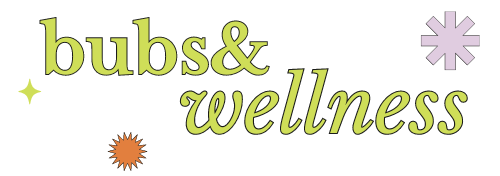Hey, Mama! So, you’ve survived the whirlwind of childbirth, and now you’re navigating the beautiful chaos of motherhood. Amidst all the diaper changes and sleepless nights, you might have noticed another pesky issue creeping in – postpartum hair loss. Don’t worry, you’re not alone, and there’s plenty we can do to tackle it head-on! (No pun intended.)
Understanding Postpartum Hair Loss
First things first, let’s get to the root (pun intended) of postpartum hair loss. During pregnancy, your lovely locks probably felt thicker and more luscious than ever. (Unless you had the problem of hair loss from the very beginning…. thanks hormones). This is thanks to the elevated levels of estrogen that keep your hair in the growth phase. After giving birth, those hormone levels drop, and your hair shifts to the shedding phase, leading to postpartum hair loss. It’s totally normal, and most moms experience it.
I was having to clean my brush almost every time I used it, and the drain in our bathroom shower got so backed up, my husband had to find a special tool to clear the clog. The humiliation and frustration I felt were next level… not to mention noticing my part visibly become wider and not knowing how to hide it or fix it. Queue the sleepless nights of searching Reddit and Facebook groups to find out I wasn’t alone. And, I learned a thing or two along the way.
So you don’t have to search everywhere the way that I did… here are some practical tips and treatments that will help you manage and even prevent postpartum hair loss.
1. Keep Your Scalp Healthy
A healthy scalp is the foundation for strong, resilient hair. Make sure to:
- Use a gentle shampoo to cleanse your scalp without stripping it of natural oils. You could even request prescription-strength shampoo that helps block DHA from entering your scalp – Ketoconazole. Your OB and a dermatologist can write you a script, and you use it a couple of times a week.
- Consider a scalp massage with essential oils like lavender or rosemary to stimulate blood flow and promote hair growth.
- Exfoliate your scalp once a week to remove dead skin cells and unclog hair follicles.
2. Nourish from the Inside Out
Your diet plays a crucial role in maintaining healthy hair. Ensure you’re getting plenty of:
- Protein: Hair is primarily made of protein, so include lean meats, eggs, and beans in your diet.
- Iron: Iron deficiency can exacerbate hair loss. Spinach, lentils, and red meat are great sources.
- Vitamins: Vitamins A, C, D, and E, as well as zinc and omega-3 fatty acids, are essential for hair health. Consider taking a prenatal vitamin if you’re breastfeeding. I continued my prenatal vitamin for a year after I gave birth… my entire breastfeeding journey.
3. Stay Hydrated
Drinking enough water is vital for overall health and directly impacts the condition of your hair. Aim for at least eight glasses of water a day to keep your hair hydrated and healthy. This is so key, and so underrated. Our bodies are literally made of water, and if we aren’t replenishing our stores – especially if breastfeeding – then you can get dehydrated quickly.
4. Avoid Heat and Harsh Treatments
Your hair is more fragile postpartum, so be gentle with it. Limit the use of:
- Heat styling tools like blow dryers, straighteners, and curling irons.
- Honestly, I looked like a troll for the first six months postpartum, because I refused to do anything with my hair. Maybe it helped with hair loss??
- Harsh chemical treatments such as bleaching, perming, or coloring.
- Tight hairstyles that pull on the scalp, like ponytails or braids.
5. Consider Topical Treatments
There are several over-the-counter topical treatments that can help with postpartum hair loss:
- Minoxidil: A popular option for promoting hair regrowth. *If you’re breastfeeding, check with your doctor to make sure what you’re taking is safe.
- Hair serums: Look for serums containing biotin, keratin, or peptides to strengthen hair.
6. Stress Management
Stress can worsen postpartum hair loss, so finding ways to relax and recharge is crucial. Try:
- Meditation or yoga to calm your mind.
- Short, regular exercise routines to boost your mood.
- Asking for help from family or friends to get some much-needed rest.
7. Consult a Professional
If your postpartum hair loss is severe or persists for more than a year, it might be time to see a dermatologist or a trichologist. They can recommend more specific treatments or check for underlying health conditions.
Final Thoughts
Postpartum hair loss can be a frustrating part of the motherhood journey, but with the right care and attention, you can keep it under control. If you’ve found these tips helpful, share them with other moms who might be dealing with postpartum hair loss. And don’t forget to leave a comment with your own hair care tips and tricks. You’re not alone in this, and we can all help and learn from each other!

